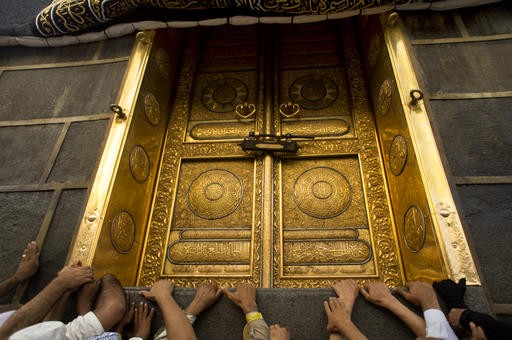Popular Reads
Top Results
Can't find what you're looking for?
View all search resultsPopular Reads
Top Results
Can't find what you're looking for?
View all search resultsIndonesians love of Mecca boosts lucrative ‘umrah’ business
Change text size
Gift Premium Articles
to Anyone
A
s the country with the world’s largest Muslim population, Indonesia has seen the minor pilgrimage to Saudi Arabia, the umrah, grow into a lucrative business with seemingly endless demand. A long waiting list for the haj is among the main drivers.
For Muslims, they will surely choose haj over umrah if they can because the fifth pillar of Islam is mandatory for any Muslim so long as he or she is physically fit and financially able to do it. Meanwhile, umrah is a non-compulsory pilgrimage that can be performed throughout the year.
However, the problem is that millions of Indonesian Muslims want to perform haj, while the annual quota set by the Saudi Arabian government for Indonesia is only 231,000 people. Thus, a Muslim who applies for haj today will find his or her boarding schedule set for a decade later.
Rachmah Fitrie Inayah, 26, a housewife in Depok, West Java, found one of the greatest deals two years ago to go on umrah for just Rp 10 million (US$744.49). She said the haj was too expensive at that time, aside from the long waiting list.
The only requirement was that she had to wait at least a year, which she agreed to. “I had some extra money as I was just recently married and there was a promotional [umrah] package,” she told
The Jakarta Post recently. Rachmah ended up going two years later, in February 2016, along with her husband and her parents-in-law.
The agent only asked for an extra Rp 1 million per person due to foreign exchange volatility over the two years.
This affordable umrah package, which according to the Association of Haj and Umrah Private Operators (Himpuh) made up 60 percent of the visits, is an incentive for the business to soar. An average of 650,000 Indonesians go on umrah each year, creating a business worth an estimated US$1 billion annually.
Data from the Religious Affairs Ministry shows a 63.6 percent jump in the number of umrah pilgrims to 818,000 last year, from only 500,000 in 2012.
“It [the umrah business] really depends on people’s purchasing power. With weakening purchasing power, the tendency is for [tour agents] to sell it as low as Rp 16.5 million,” Indonesian Himpuh secretary-general Muharram Ahmad explained.
He stated that the lowest price for umrah should be $1,650. However, currently there are no regulations from the Religious Affairs Ministry on the minimum price for an umrah package. This often leads to unfortunate incidents such as stranded pilgrims or broken promises.
Rachmah is one such unfortunate pilgrim. As she arrived in Mecca with the low-cost umrah package, some “adjustments” were stipulated. She had to stay with three random women during her stay at the hotel.
“We had one bus; we did not go to other extra cities,” she said, referring to other umrah packages that usually include a tour to Istanbul, Turkey, or Cairo, Egypt.
However, she said she enjoyed it anyway because she was not as unfortunate as others. Himpuh has recorded that around 11,000 Indonesians were victims of scams between mid-October 2015 and early October 2016 and failed to go on umrah as a result. Within the past two months, at least 900 people have not been able to return home from Mecca due to ticket fraud as a result of low-cost umrah packages.
The ministry has encouraged people to use the mobile app Umrah Cerdas (Smart Umrah), which enables them to check the legality of a travel agency. However, it has yet to create stricter regulations to prevent travel agents from selling umrah packages at below $1,650.
Alsha Tour and Travel, for example, offers $1,380 per person for its promotional package. Established in 2014, it has flown 4,000 people to date. In the last two months of 2016, it delivered 1,500 people, with 500 of them taking the $1,380 package.
The secret, according to the firm’s operational director M. Hanafi, is in direct purchasing for airline tickets and large bookings for hotel room. “We buy directly from the airlines and also seal contracts with the hotel. So we buy in bulk and this makes it cheaper,” he said.
Another travel agent, Sulthanan Nashira Wisata, offers a promo package tagged at $1,190 per person by using the same “law of big numbers”. It now sees 80 percent of its business come from this package.










